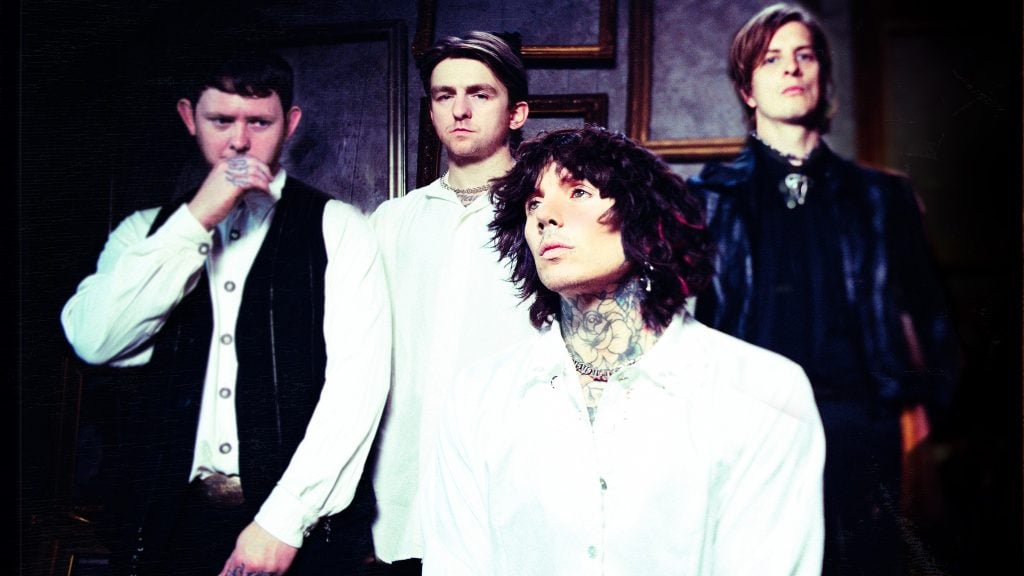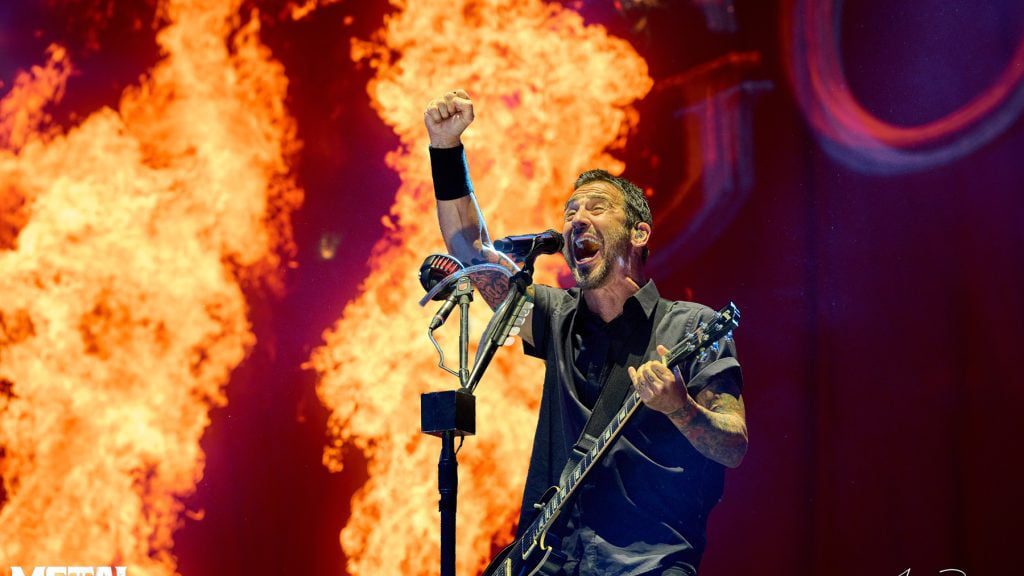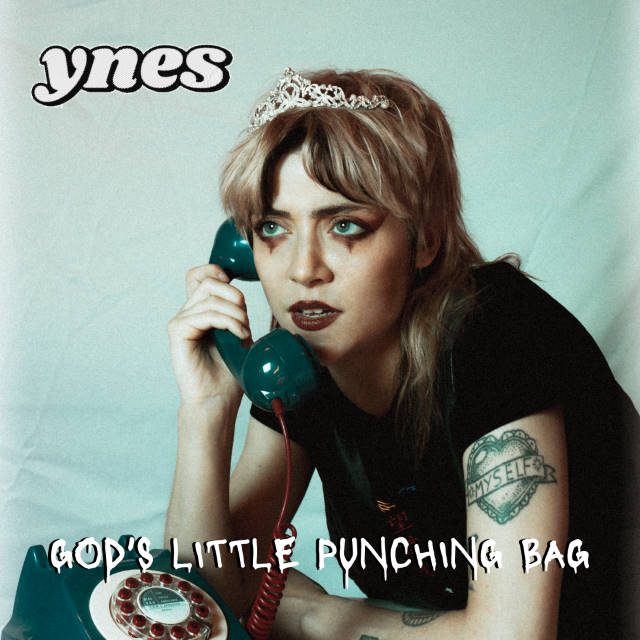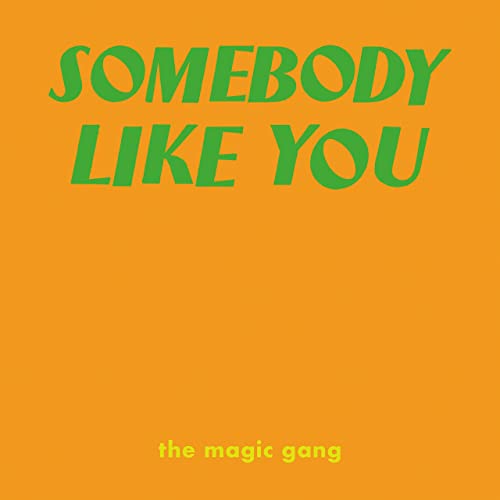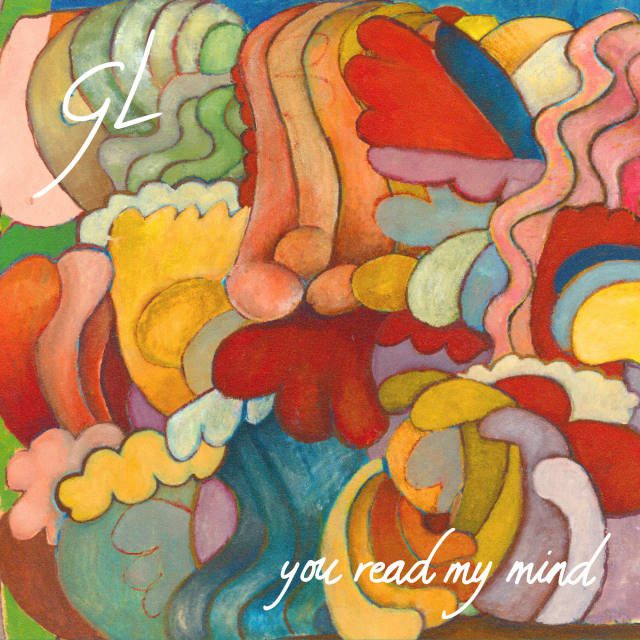
‘Nature reminded me you still have to live’: Jane Weaver on grief, reinvention and 80s Russian aerobics music
Jane Weaver turns up to our interview in a Stockport restaurant carrying a plastic bag stuffed with albums. They are all old, the worse for wear – she’s taking them to be professionally cleaned later – and obscure: the closest the bag’s contents comes to mainstream is a compilation of soundtrack music from the 80s films of nouvelle vague director Eric Rohmer. “The music from the scenes set in discos or parties,” she nods. “Really good. Eighties, French, synthesisers. Some of it sounds a bit like Air.”
This all seems very Jane Weaver-ish. Over the past decade or so, she has released a string of fantastic, acclaimed albums, each one a left-turn from the last. They’ve taken in acid folk, space rock, eerie, drifting electronic experimentation, hypnotic, vaguely krautrock-y instrumentals and full-on pop, all of them informed by separate moodboards of obscure influences that speak of a profoundly eclectic taste and a lot of time spent digging through esoteric records. Even 2021’s glittery, pop-facing Flock was apparently based in an infatuation with “Lebanese torch songs and Australian punk”. She is the kind of artist who says things like, “I just kind of went down the rabbit hole of 80s Russian aerobics music,” in the same way that other people might announce they’ve been streaming that Noah Kahan single a lot.
Her latest album, Love in Constant Spectacle, is consistent in that sense. The cover art, she explains, is inspired by Belladonna of Sadness, a 1973 “adult animation” film about a witch in medieval France. Its themes of misogyny, feudal repression and moral depravity were such a box office turn-off that it bankrupted the studio that made it. And the music is another left turn. While the 52-year-old’s previous albums have been self-produced, on Love in Constant Spectacle she worked with PJ Harvey’s right-hand man John Parish in Bristol. In marked contrast to Flock’s neon hues, the results are stark, dark, guitar-heavy and occasionally folky, which seems faintly surprising: she abandoned a folky style over a decade ago, sick of “all the pigeonholing” that comes with being a woman playing an acoustic guitar. “It’s that thing about slightly rebelling against the last thing you did, or rebelling against yourself,” she says.
Moreover, it was written and recorded while her father was seriously ill. “It’s a thing that’s been going on for the last five years, walking with that anticipatory grief,” she says. He died in August. “When I got in touch with John, maybe it was a cry for help, but I thought, I just want to work outside Manchester, go somewhere completely different, escape for a while and see what comes out. My way of doing production, I live and breathe an album for three years – the studio’s just around the corner from where I live. Maybe subconsciously I needed help this time.”
The title, she says, comes from “looking under rocks and stones for the happy things. I realise now that last year, when things were going badly, I seemed to spend an inordinate amount of time looking out of the window in the morning at the birds in the trees. Looking at simple things in nature, like motifs or signs that everything’s fine – it brought home to me that you still have to live, you still have to appreciate these things.” Weaver says the results are “more direct and exposed”, although such things are relative: she deliberately “randomised” her lyrics, cutting and pasting words in text documents, feeding songs through Google Translate twice – first into a foreign language then back into English – until they had the quality of “subtitles on a French film, where if you can understand a bit of French you realise they’re not actually saying what it says”.
“You don’t want to write too much about yourself,” she says. “I’d rather write about scenarios and characters and dress them up.”
It’s another entry in what one critic called Weaver’s “hermetically sealed” world. Her music has occasionally intersected with the mainstream – Coldplay sampled her track Silver Chord on their album Ghost Stories; her songs have turned up on the soundtracks of Killing Eve and the recent Zac Efron vehicle Ricky Stanicky – but for the most part she and music seem to exist in their own universe. The impression of an artist slightly apart is bolstered by the fact that she is also a one-woman cottage industry, driving herself and her band to gigs, even if it involves a 12-hour journey down the US west coast, and holding forth about the disastrous effect of Brexit on underground musicians’ ability to tour Europe.
While she is signed to Fire, she also runs her own label, Bird, which concentrates exclusively on female artists, some rescued by Weaver from the dustbin of history. At Jarvis Cocker’s Meltdown festival in 2007, she curated a night of “the Lost Ladies of Folk”, which featured dimly remembered late 60s singer-songwriters Bonnie Dobson, Wendy Flower and Susan Christie alongside Cate Le Bon and Weaver, then heavily pregnant. The motivation behind starting the label, she says, came after seeing “my female friends just dropping out of music while all my male peers seemed to be going from strength to strength … no – we must carry on, we must prevail!”
It’s an approach that doubtless has something to do with Weaver’s early career: a tumultuous round of disappointments, tragedy and bruising encounters with the music industry. Her first band, the Britpoppy Kill Laura, endured an unhappy relationship with a major label. After they split up, she was signed as a solo artist by New Order manager Rob Gretton’s label, but Gretton died suddenly of a heart attack before her album could be released. She was offered a solo deal by a major label, but it was withdrawn just as she was about to play a showcase gig for them; it transpired the label’s representatives weren’t there anyway, having decided it was “too awkward” under the circumstances.
By the early 00s, she was fronting the alternately psychedelic and folky quartet Misty Dixon, part of the collective of Manchester artists around the Twisted Nerve label, founded by Badly Drawn Boy and Weaver’s partner, the musician/DJ/graphic designer Andy Votel. The band were finishing their debut album when guitarist Dave Tyack vanished on a walking holiday in Corsica. “We went to look for him, driving around in a Twingo hire car, putting up posters, speaking to the gendarmerie, going into bars in remote villages – you’d walk in and all these guys would turn around, no teeth, wearing necklaces with gold machine guns hanging from them. You’d explain why you were there, and one guy at the end of the bar would start laughing, like in a film. We just kept thinking he was alive, because he was only in his early 20s, we’d just seen him at a friend’s wedding before he left – but he’d already died.” Tyack’s remains were found in 2004; he had apparently fallen to his death.

Weaver subsequently went her own way, resuming her solo career, attracting critical attention with 2010’s The Fallen By Watchbird, an album accompanied by a book of Weaver-penned fairytales. What she calls her “indie breakthrough” came with 2014’s cosmic, driving, synth-heavy The Silver Globe, an album on which she says she effectively returned to the music of her youth. “I grew up in Widnes, and it’s the kind of place where you have to really seek out different people. There were hippies, bikers, punks, goths, this massive group of alternative people that I found when I was in sixth form, so I was listening to Gong, the Pink Fairies, Hawkwind. I got into the free-festival movement, driving in this shitty Datsun to the Lake District in a convoy with people who lived in double-decker buses, watching those kind of festival bands. It was exciting, there was a utopian, beautiful side to it, but the practicalities of it were brutal.”
after newsletter promotion
Reading a history of metal on a recent holiday made Weaver think about growing up in Widnes again. The first single she ever bought was Iron Maiden’s Run to the Hills (“although I think the second was by Kim Wilde”) and there were a lot of metalheads in her teenage gang; they used to go and see Slayer and Metallica together. She has been idly wondering about making a heavy metal album. “I don’t think I could go there,” she sighs. “You’ve got to be an amazing guitarist to do all that … shredding.”
Anyway, before the next project, she has to work out how she’s going to present Love in Constant Spectacle live: “I love all that post-production, thinking about costumes, getting film-makers to do visuals.” She has done some curious gigs before – she elected to perform 2019’s Loops in the Secret Society completely solo, cutting vinyl dubplates, playing them on a turntable and improvising over them on a bank of synths, “like Rick Wakeman” – but Love in Constant Spectacle feels different. “It’s not that kind of atmosphere-y space rock sound.”
But she has some suitably Jane Weaver-ish ideas, the product of another recent trip down the rabbit hole. “A lot of these new Christian churches in America have these amazing displays of light boxes, like LED things. Apparently it’s a thing over there: fabulous light displays in churches.”
She seems to be thinking out loud. “That would be transportable, too. It would go in the van. Maybe I’ll do that.”
